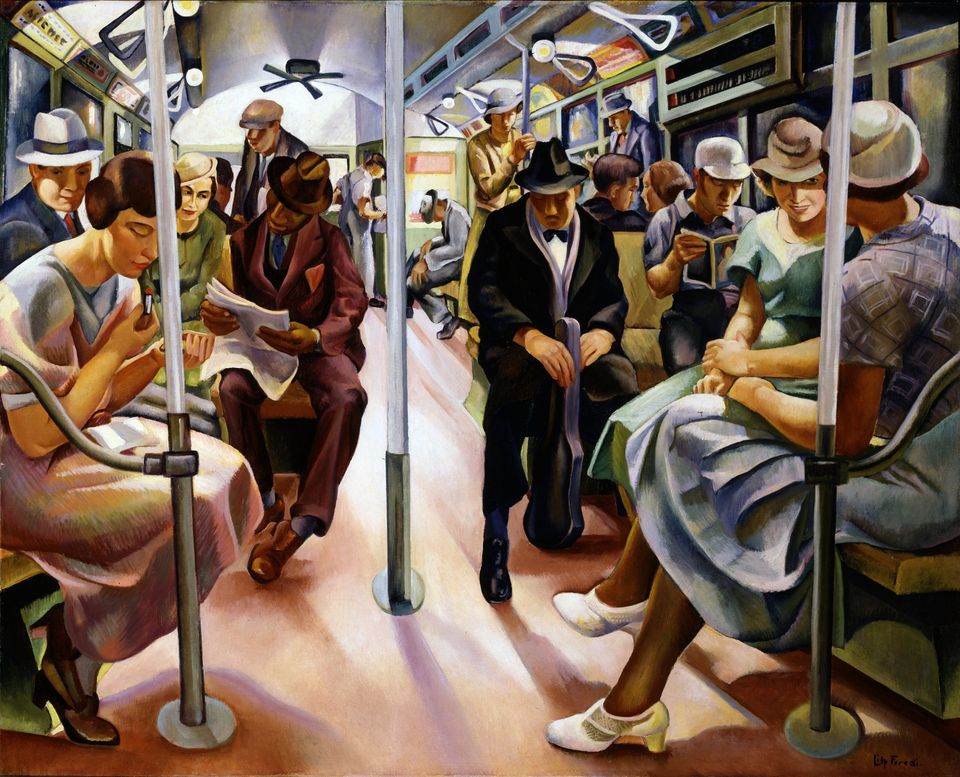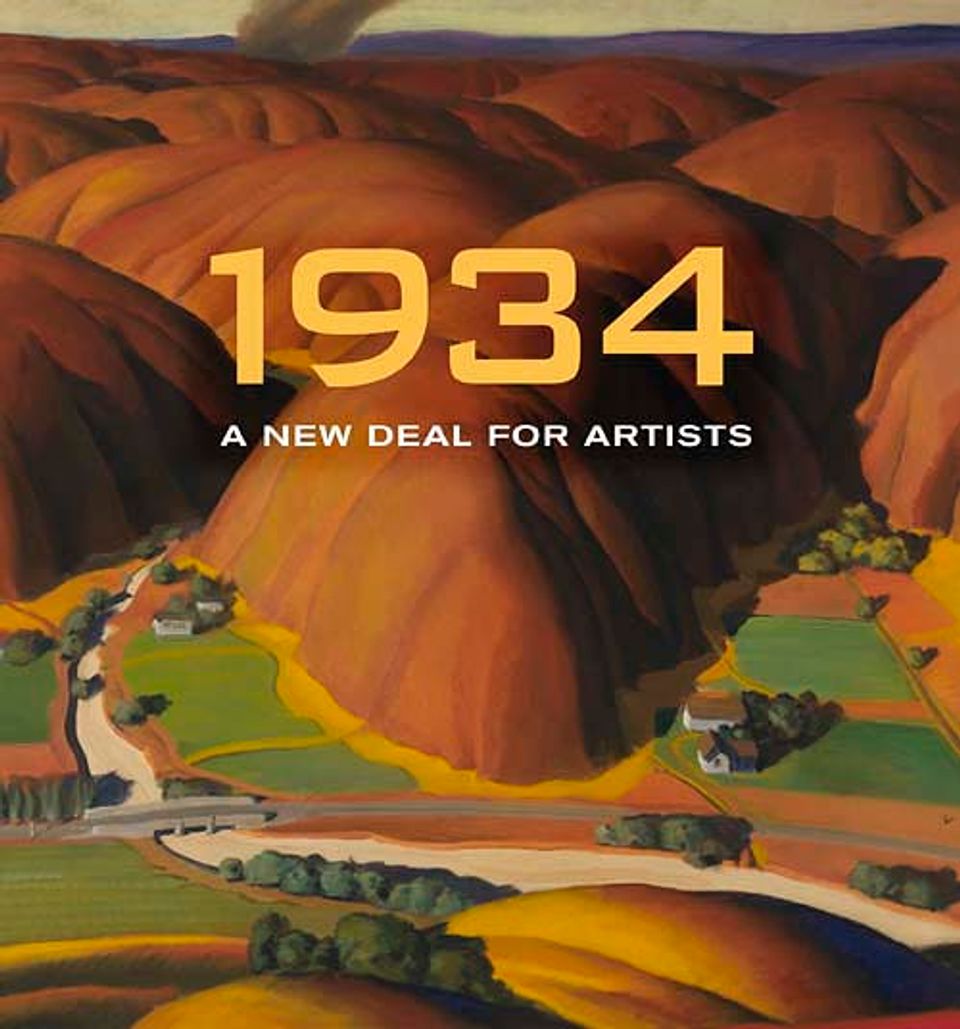Experience America

Lily Furedi, Subway, 1934, Smithsonian American Art Museum
The 1930s was a heady time for artists in America. Through President Franklin Roosevelt’s New Deal programs, the federal government paid them to paint and sculpt and urged them to look to the nation’s land and people for subjects. For the next decade — until World War II brought support to a halt — the country’s artists captured the beauty of the landscape, the industry of America’s working people, and a sense of community shared in towns large and small despite the Great Depression.
Description
Many of the paintings in Experience America were created in 1934 for a pilot program designed to put artists to work; others were produced under the auspices of the WPA (Works Progress Administration), which followed. The thousands of paintings, sculptures, and murals placed in schools, post offices, and other public buildings stand as a testimony to the resilience of Americans during one of the most difficult periods in U.S. history. This display is drawn entirely from the Smithsonian American Art Museum's collection. SAAM holds the largest collection of New Deal art in the world.















